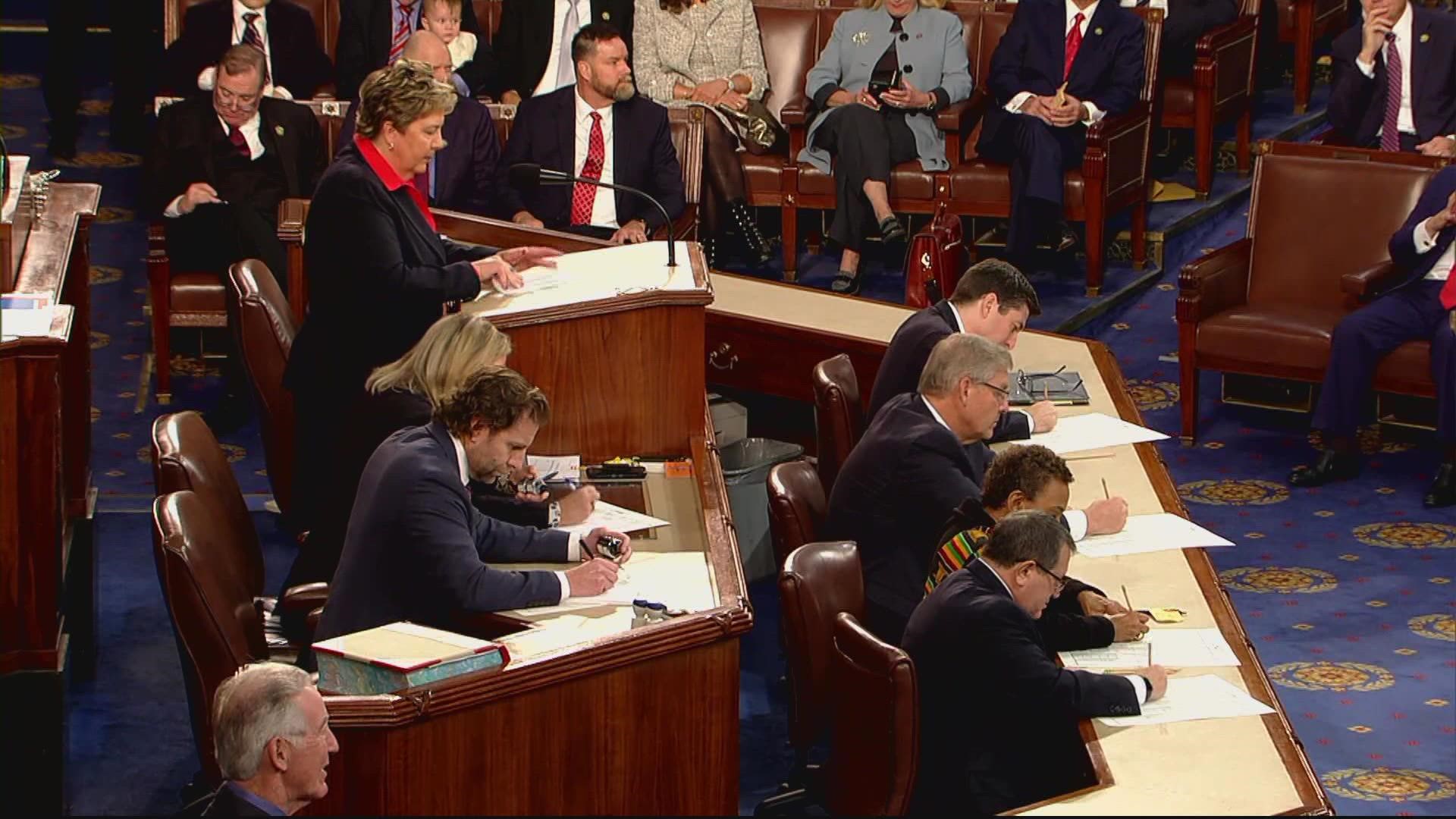WASHINGTON — While GOP lawmakers’ inability to select a new House Speaker has become the butt of jokes on social media, the situation could have consequences for District residents if it continues.
Republicans won control of the US House of Representatives during the midterms in November. However, after seven different votes on the House floor, the party has yet to come to a consensus as to who should lead its members in that chamber.
As a result, the House has yet to proceed with any of its normal business.
No House rules have been adopted. No representatives have been sworn in as members.
A delay of this nature brings with it unique consequences for the District of Columbia.
After the DC Council votes on a bill, it is then passed on to the District’s mayor for review. When that legislation clears both of those branches, it is then transmitted to Congress for a period of review before it can become law.
But, if Congress is not operating as it should, that entire legislative system is brought to a halt.
“With the lack of a Speaker, the House is unable to meet,” DC Council Chair Phil Mendelson said. “If the House is unable to meet, there can't be a congressional review, and so, our bills are potentially at risk."
Mendelson said it is likely there are roughly four dozen D.C. bills waiting for congressional review.
In early November, the DC Council decided to conduct its final transmittal of legislation to Congress for the year. After that, the council opted not to transmit any other bills because there were fewer than 30 Congressional review days left in the session year before both chambers adjourned, according to DC’s Office of the Secretary.
D.C. has found itself in a similar situation before. And, it happened just a few years ago.
After rioters stormed the US Capitol Building on Jan. 6, 2021, federal authorities erected fences around the building complex to deter any possible threats in the future.
However, those same fences stopped D.C. officials from delivering District legislation to the Capitol for Congressional Review.
"After several weeks of not being able to review our bills, our Chief Administrative officer, the Secretary to the Council, she made arrangements to meet Congressional staffers outside the Capitol grounds to give them our bills,” Mendelson said.
The debate among Republicans has also impacted D.C. Delegate Eleanor Holmes Norton.
Norton, who has represented the District for more than 30 years on the Hill, has not been sworn in like the rest of her peers.
"We can't be members until rules are adopted or until a Speaker is chosen,” she said.
However, Norton said she is still making constituent services calls on the behalf of her constituents.
"I've been making calls even though Congress isn't in session," she said.
Norton even introduced a new D.C. Statehood Bill, on Tuesday, before the opening of the new Congress. However, she admits she’s not entirely sure what will come of it.
"I'm not sure any of this is being accepted until a Speaker is elected or rules are adopted,” she said.
Mendelson said he believes federal lawmakers need to consider reforms in the future to stop similar scenarios from impacting D.C. For starters, he said he would like to see the Home Rule Act be amended.
“To lift this requirement for Congressional review because we see over and over again where actions that are purely focused on the federal government impede our ability to govern,” he said.
Mendelson added this issue highlights a bigger problem.
"All of this speaks to our problem with the lack of having statehood,” he said. “We answer to Congress and Congress still requires a role for themselves. Theoretically, that doesn't sound unreasonable, but then something like this comes along and we see why it's a problem."
Sign up for the Get Up DC newsletter: Your forecast. Your commute. Your news.
Sign up for the Capitol Breach email newsletter, delivering the latest breaking news and a roundup of the investigation into the Capitol Riots on January 6, 2021.

